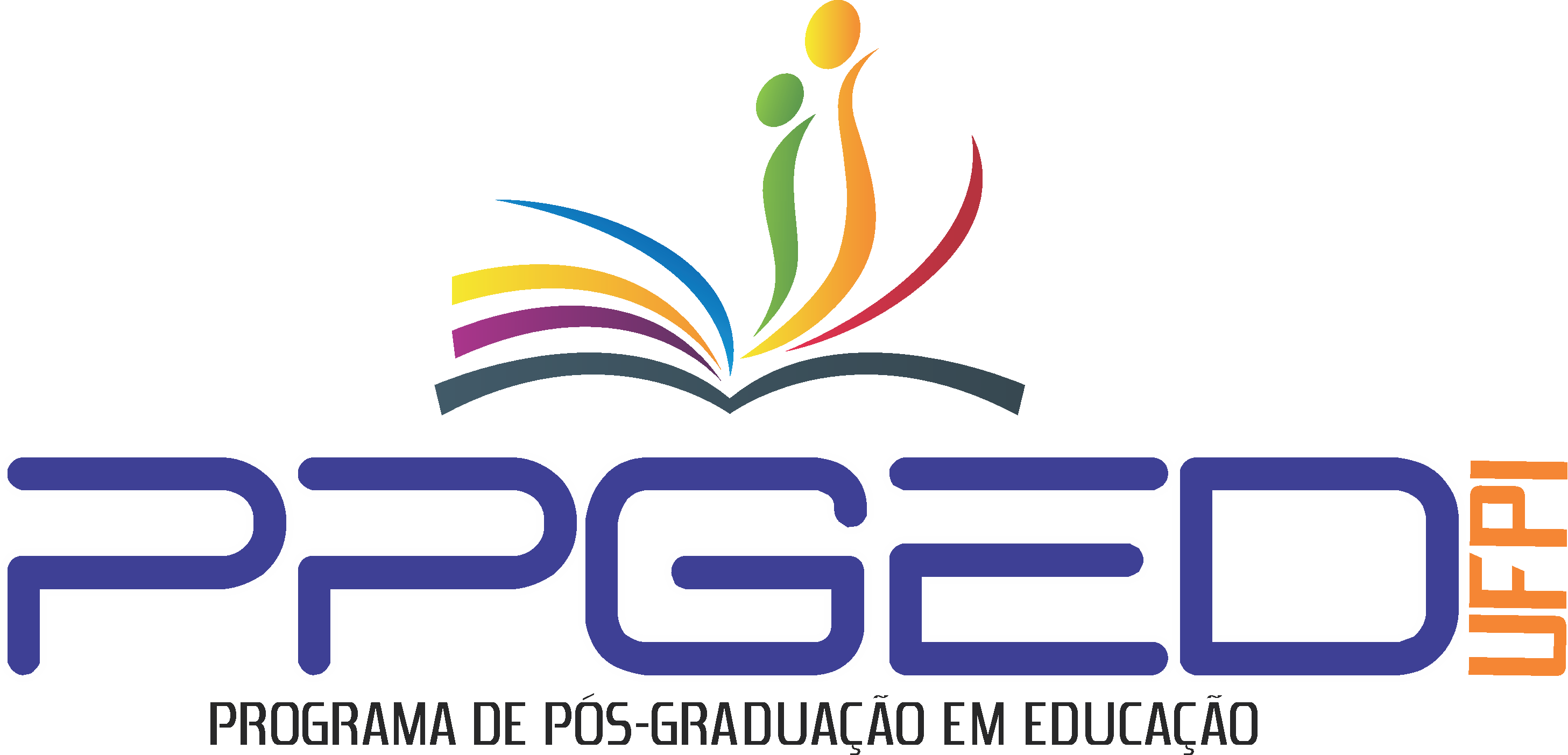PRÁTICAS PEDAGÓGICAS DE PROFESSORES EM ESCOLAS DE ENSINO MÉDIO DO PIAUÍ NO SAEB 2019
DOI:
https://doi.org/10.26694/rles.v27i55.4163Palavras-chave:
Escola pública, Ideb, Piauí, Práticas docentes, Recursos didáticosResumo
O artigo analisa dois blocos de questões presentes no questionário contextual do Sistema de Avaliação da Educação Básica 2019 dos professores do 3º ano do ensino médio da rede estadual do Piauí: práticas pedagógicas de Língua Portuguesa e Matemática e recursos pedagógicos utilizados e considerados adequados pelos docentes. Se apoia em estudos e pesquisas realizadas sobre indicadores educacionais que contribuem para a melhoria da aprendizagem e trabalha com uma amostra de cem escolas, metade com os melhores resultados no Índice de Desenvolvimento da Educação Básica (Ideb) 2019 e igual número, com os menores, procurando verificar as percepções dos docentes sobre esses dois blocos de questões. Os microdados foram obtidos no site do Instituto Nacional de Estudos e Pesquisas Educacionais Anísio Teixeira (Inep) e tratados com uso de estatística descritiva. Os resultados mostram que quanto às práticas pedagógicas, os dois grupos de professores assumem posturas semelhantes; já no que se refere aos recursos pedagógicos utilizados, as escolas com menores resultados no Ideb apresentam maior carência da maioria deles. Outros indicadores educacionais analisados mostram que as escolas com menores resultados no Ideb possuem alunos com nível socioeconômico mais baixo, apresentam taxas de aprovação bastante inferiores e a diferença de proficiência em Língua Portuguesa e Matemática é inferior ao grupo de escolas com maiores resultados, em valores correspondem aproximadamente a dois anos escolares. Ao final, conclui-se que a responsabilização dos professores cujas avaliações em larga escala têm tão fortemente destacado precisa ser mediada por um conjunto amplo de variáveis intra e extraescolares.
Downloads
Referências
BONAMINO, A.; SOUSA, S. Z. Três gerações de avaliação da educação básica no Brasil: interfaces com o currículo da/na escola. Educação e Pesquisa, São Paulo, v. 38, n. 2, p. 373 - 388, abr./jun. 2012. Disponível em: https://www.scielo.br/j/ep/a/ rtQkYDSjky4mXG9TCrgRSqJ/abstract/?lang=pt. Acesso em: 8 abr. 2023.
BRASIL. Microdados Prova Brasil 2019. Brasília: Inep, 2021. Disponível em: https://www.gov.br/inep/pt-br/acesso-a-informacao/dados-abertos/microdados/saeb. Acesso em: 6 mai. 2021.
BRASIL. Decreto nº 6094, de 24 de abril de 2007. Brasília: MEC 2007. Disponível em: http://www.planalto.gov.br/ccivil_03/_ato2007-2010/2007/decreto/d6094.htm. Acesso em: 5 jun. 2021.
BRASIL. Portaria n. 482, de 7 de junho de 2013. Brasília: MEC, 2013. Disponível em: https://pesquisa.in.gov.br/imprensa/jsp/visualiza/index.jsp?jornal=1&data=10/06/ 2013&pagina=17. Acesso em: 08 jan. 2022.
CANALES, A.; MALDONADO, L. Teacher quality and student achievement in Chile: Linking teachers' contribution and observable characteristics. International journal of educational development, v. 60, p. 33-50, 2018. Disponível em: https://www.sciencedirect.com/science/article/pii/S073805931730281X?casa_token=xH37TetkilYAAAAA:9ILR2PS3jTd7WkDWl-b-eN1exSJF7duZryjdsYv0sUIaHNQkD5DYnGLc_ FP6G1jpdYM8BbdEaN5C Acesso em: 23 jan. 2023.
DE MARTINO JANNUZZI, Paulo. Indicadores no ciclo de políticas sociais no Brasil. Indicadores sociais: passado, presente e futuro/IBGE. (Orgs.) André Simões e Antônio Carlos Alkmim. Rio de Janeiro: IBGE, 2017. 174p. Disponível em: https://biblioteca.ibge.gov.br/visualizacao/livros/liv101153.pdf. Acesso em: 10 jan. 2022.
FERREIRA, Livia Andrade; PEREIRA, Maria Simone Ferraz. Efeitos das Avaliações em Larga Escala na organização do Currículo Escolar. Estudos sobre Educação. Presidente Prudente, SP, v. 30, n.1, p. 327-.344, Março/Dez., 2019. Disponível em: https://revista.fct.unesp.br/ index.php/Nuances/article/download/6784/pdf. Acesso em 12 jan. 2022.
GATTI, Bernadete Angelina et al. Professores do Brasil: novos cenários de formação. Brasília: UNESCO, 2019. Ddisponível em: https://www.fcc.org.br/fcc/wp-content/ uploads/2019/05/Livro_ProfessoresDoBrasil.pdf) Acesso em 28 nov. 2021.
GIL, Carlos, A. Como Elaborar Projetos de Pesquisa, 6ª edição. São Paulo, Atlas, 2017.
INEP. Indicador de nível socioeconômico do Saeb 2019. Nota Técnica. Brasília. 2021a.
INEP. SAEB 2019 – Questionário do(a) Professor(a). Brasília, 2021b.
PONTES JUNIOR, J. A. F.; TAHIM, A. P. V. O.; LIMA, M. A. M.; ALMEIDA, L. S. Dimensão Epistemológica da Pesquisa Quantitativa em Educação. In: ANDRADE, F. A. de; GUERRA, M. Á.
M. A.; JUVÊNCIO, V. L. P.; FREITAS, M. de S. (Org.). Caminhos da Educação: questões, debate e experiências. 1ed. Curitiba: Editora CRV, 2016, p. 245-254.
RICHTER, L. M.; SILVA, M. V. O IDEB e seus efeitos na organização do trabalho escolar. Revista Brasileira de Política e Administração da Educação-Periódico científico editado pela ANPAE, v. 37, n. 1, 2021. Disponível em: https://www.seer.ufrgs.br/index.php/rbpae/article/view/105962/61621. Acesso em: 24 jan. 2023.
SOARES, J. F.; ALVES, M. T. G.; FONSECA, J. A. Trajetórias educacionais como evidência da qualidade da educação básica brasileira. Revista Brasileira de Estudos de População, 38, 1–21. 2021. Disponível em: https://www.scielo.br/j/rbepop/a/ 9ZRM8LBTqQMHMDQNJDwjQZQ/. Acesso em 12 jan. 2022.
SOARES, J. F. Ideb na lei? Simon’s Site, 13 jul. 2011. Disponível em: https://www.schwartzman.org.br/sitesimon/jose-francisco-soares-ideb-na-lei/. Acesso em 12 jan. 2022.
SOUSA, C. P. de; FERREIRA, S. L. Avaliação de larga escala e da aprendizagem na escola: um diálogo necessário. Psicol. educ., São Paulo, n. 48, p. 13-23, jun. 2019. Disponível em http://pepsic.bvsalud.org/scielo.php?script=sci_arttext&pid=S1414-6975201900 0100003& lng=pt&nrm=iso. Acesso em: 18 nov. 2021.
URBINA, Susana. Fundamentos da testagem psicológica. Porto Alegre: Artmed, 2007.
ZANELA, Claudia C. Uma reflexão a partir do Questionário do Professor Prova Brasil SAEB: práticas pedagógicas e aprendizagem na Rede Municipal de Ensino de Florianópolis. Tese de Doutorado. 2020. Disponível em: https://repositorio.ufsc.br/ handle/123456789/220399. Acesso em: 8 set. 2021.













